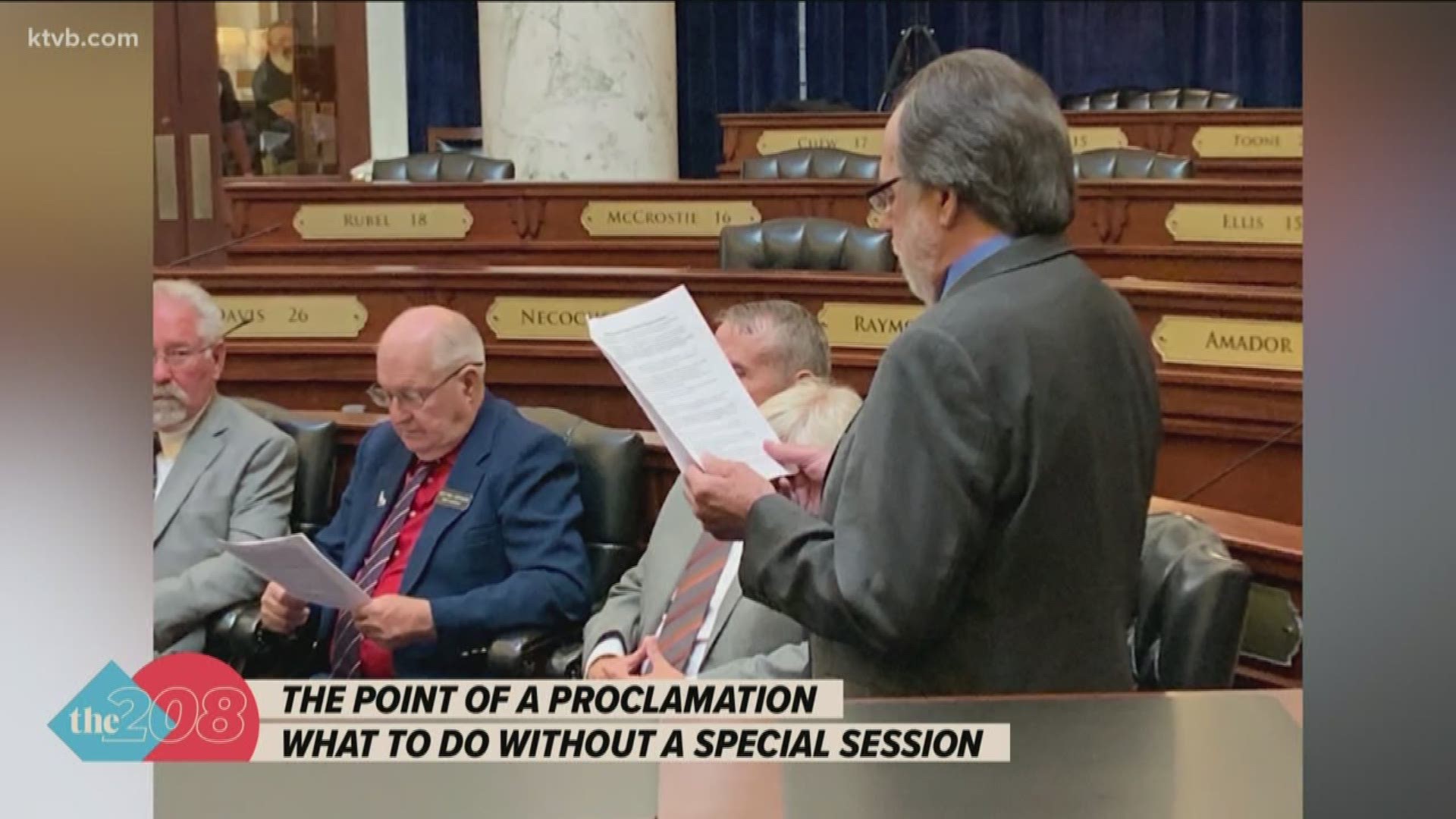BOISE, Idaho — Representative Tammy Nichols of Middleton says Tuesday's meeting on the house floor wasn't as important as the message she wanted to make sure Gov. Brad Little heard.
She says her constituents should have more input on how Idaho handles the COVID-19 crisis. Rep. Nichols just finished her first term representing District 11 in Canyon County.
"What we've been hearing from our constituents is 'Why isn't the legislature doing anything?'" she told KTVB after the meeting ended. "That's why we've been looking through the codes and the laws and trying to figure out what can we do."
The one-term Republican representative said that Tuesday's gathering was a good opportunity for them to show their constituents that they were trying to do something, even if they didn't accomplish anything.
"This wasn't to point fingers or to do anything like that," she said. "It was really to make sure that people knew that we don't agree with everything that's happening and that's been part of the problem it's been put out that, 'Well, everybody's on board with what's transpiring all the legislature's in agreement everything is cohesive and fine.' And that's just really not the case or at least included in the discussion."
In response to a question about what grounds the 14 legislators had to start up a special session, Rep. Nichols said, "Yeah, I mean there is an article we did look at and there are different opinions that have been put out, different legal opinions in regards to that, um, you know it does say in extreme emergencies or, uh, people attacking us or things along those lines so we could try to reach that because what's interesting is a lot of these definitions like the definition of an emergency. There's no definition really to it, it's kind of vague and kind of open so can we interpret things the way that we want to and then just let a court decide? I guess we could."
One of Nichols' other concerns is what she perceives as a lack of communication between Gov. Little and legislators.
"It's kind of a one-sided communication unfortunately I mean we can reach out," she said. "I mean, I've sent emails, other legislators have sent emails, letters and phone calls and you might get a response, you might not. And so that's why I think it would be very beneficial to get everybody at the table and have that discussion one where is the state going, what are we doing, and is this beneficial for the people in the State of Idaho, as a whole."
KTVB reached out to Governor Little for a response to today's meeting but has not heard back.
There is still a chance he could call a special session later this year. Many of the representatives in attendance on Tuesday made the point that they believe one is necessary, even if it's only to address the state budget. It was already approved this session, but it now appears to be off-balance because of a lack of income to the state coffers.
If Gov. Little does choose to call a special session, he would have the power to determine the agenda.
Nichols said if there is no special session this year, one of the main goals for the 2021 legislative session is to strengthen the codes to allow the legislature to call themselves back into session in emergency situations like COVID-19.
This is what Idaho's constitution currently says about states of extreme emergency:
Idaho code 46-601
AUTHORITY OF GOVERNOR
"State of extreme emergency" means: (a) the duly proclaimed existence of conditions of extreme peril to the safety of persons and property within the state, or any part thereof, caused by an enemy attack or threatened attack; or (b) the duly proclaimed existence of conditions of extreme peril to the safety of persons and property within the state, or any part thereof, caused by such conditions as air pollution, fire, flood, storm, epidemic, riot or earthquake, insurrection, breach of the peace, which conditions by reason of their magnitude are or are likely to be beyond the control of the services, personnel, equipment and facilities of any county, any city, or any city and county.
RELATED: Reclaim Idaho wins lawsuit, gets 2nd chance to get school funding initiative on Nov. ballot
Join 'The 208' conversation:
- Text us at (208) 321-5614
- E-mail us at the208@ktvb.com
- Join our The 208 Facebook group: https://www.facebook.com/groups/the208KTVB/
- Follow us on Twitter: @the208KTVB or tweet #the208 and #SoIdaho
- Follow us on Instagram: @the208KTVB
- Bookmark our landing page: /the-208
- And we also turn each episode into a podcast on Spotify or Podbeam
- Still reading this list? We're on YouTube, too:

